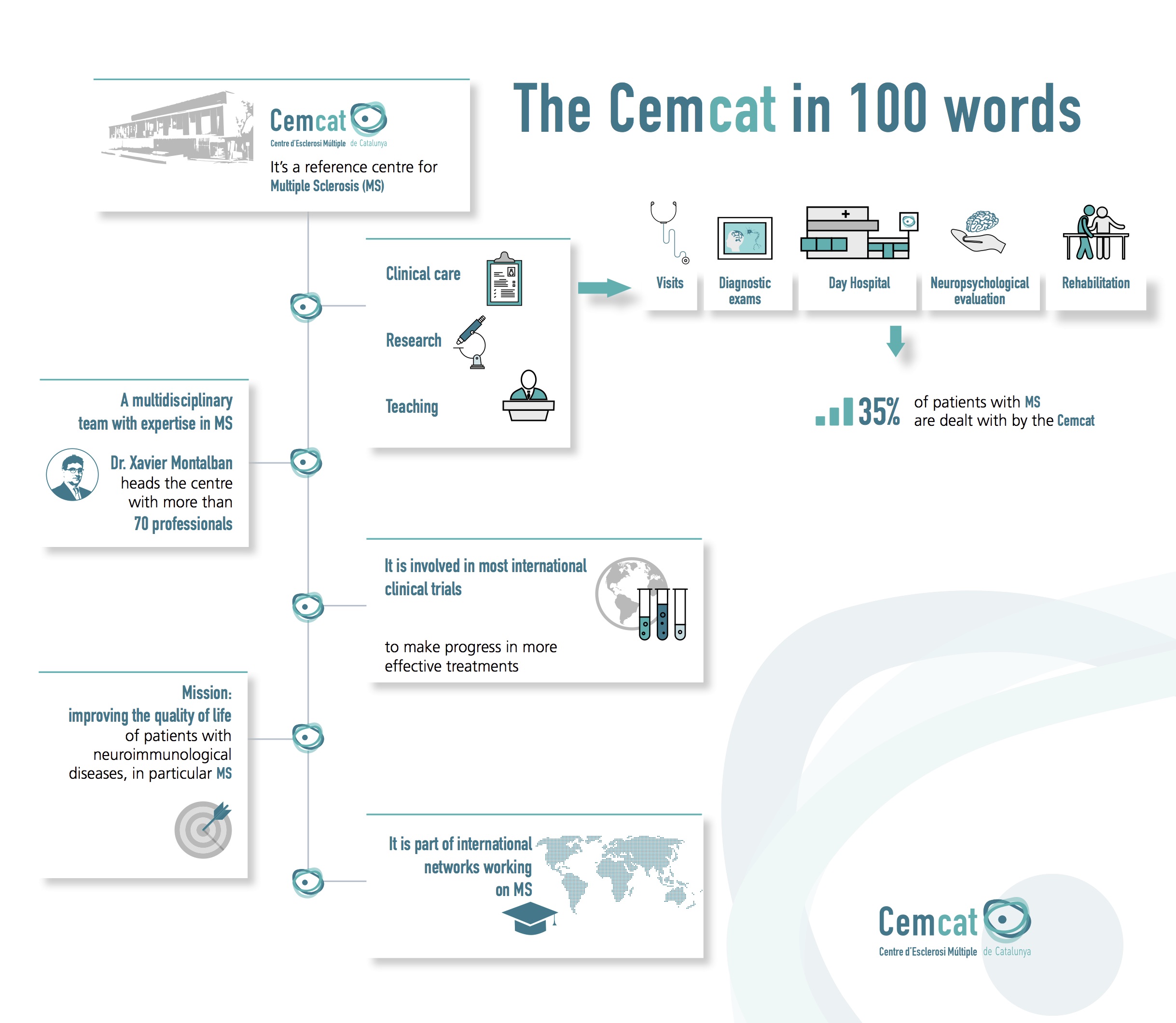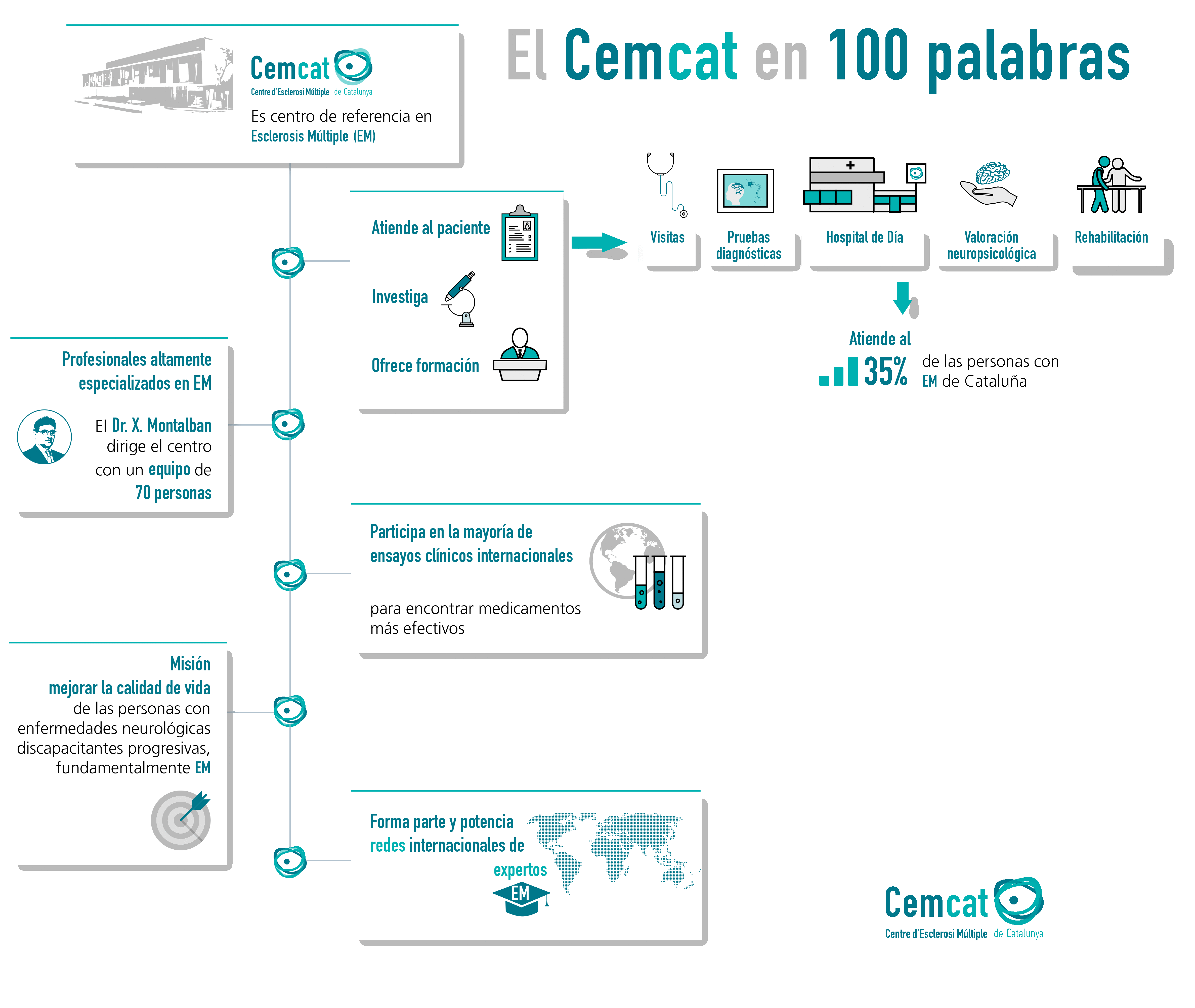You are here
Work Led by Vall d'Hebron-Cemcat Recognized in Third Edition of Esperanza Nacional Award for Research in MS

Dr. Carmen Espejo receives the award from representatives of the Multiple Sclerosis Association of Toledo (ADEMTO).
Dr. Carmen Espejo and Dr. Georgina Arrambide, researchers at Cemcat and Vall d'Hebron Research Institute, are the first authors of the article.
The Esperanza Nacional Award for Research in Multiple Sclerosis granted by the Multiple Sclerosis Association of Toledo (ADEMTO) aims to promote and recognize the research carried out by national research groups in the field of multiple sclerosis. This year, the third edition of the award has recognized the work The kappa free light chain index and oligoclonal bands have a similar role in the McDonald criteria, led by researchers from Cemcat, Vall d'Hebron University Hospital and Vall d'Hebron Research Institute (VHIR).
The study, published in 2022 in the journal Brain, analyzes the levels of free kappa light chains in cerebrospinal fluid and concludes that their accuracy in diagnosing new cases of multiple sclerosis is slightly higher than that of oligoclonal bands, the biomarker currently included in the diagnostic criteria for the disease. "Both types of proteins are associated with inflammatory processes", explains Dr. Carmen Espejo, principal investigator at Cemcat and the Clinical Neuroimmunology group at VHIR, and first author of the study, together with Dr. Georgina Arrambide, neurologist and researcher at Cemcat and the Clinical Neuroimmunology group at VHIR.
"Our results show that determining the kappa free light chain index is a fast, cost-effective and readily available alternative when it is not possible to assess the presence of oligoclonal bands," the researcher says. "Therefore, we propose to modify the current diagnostic criteria, the McDonald 2017 criteria, so that either biomarker can be used to diagnose the disease."
Dr. Espejo collected the award on Monday, December 18 at ADEMTO headquarters in Toledo. "We are very grateful, as the award is a recognition of our research and a motivation to continue advancing in the knowledge of multiple sclerosis."




